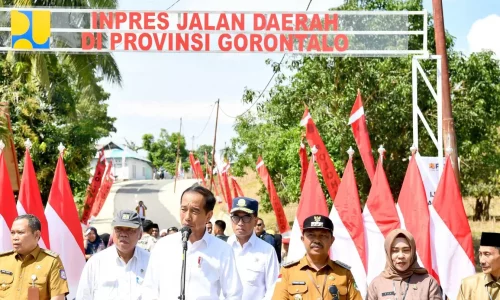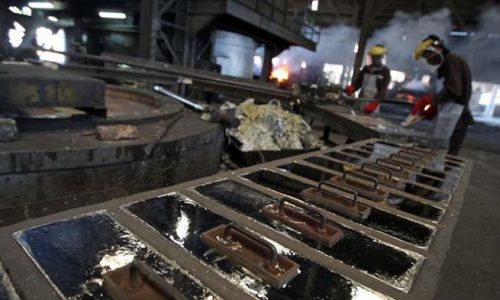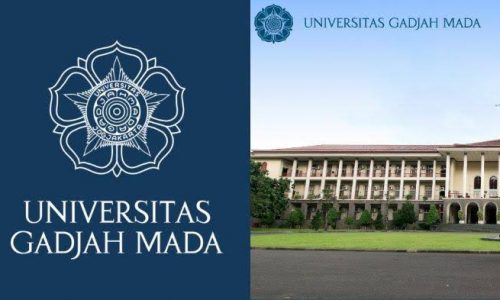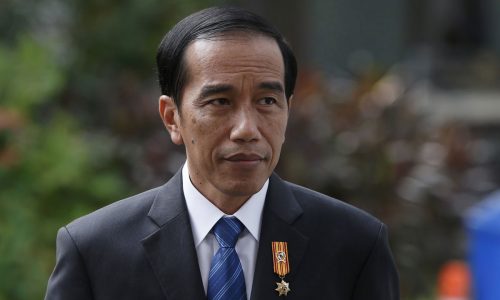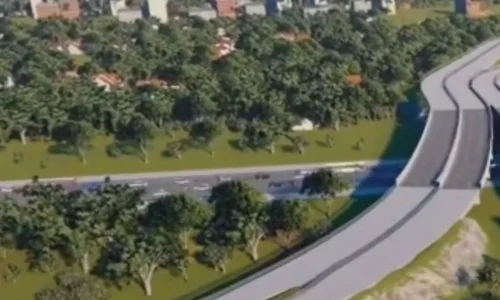Indigenous Papuans should be in the front line to disseminate information on the development of the New Papua, in order to weaken separatist groups’ propaganda which is increasingly growing at home and overseas, according to a political analyst.
Boni Hargens, a University of Indonesia (UI) lecturer and political observer, said that Papuans should serve as the mouthpiece of socializing development agenda in Papua.
“People still imply Papua as tribes with backwardness, conflicts, violence and separatism,” he said in a discussion on November 5, 2022.
He explained that the “New Papua” was a new image of the autonomous provinces in Papua. President Joko “Jokowi” Widodo’s massive infrastructure development in the provinces has automatically changed the stigma and paradigm on Papua. He added that the New Papua today and the future would refer to prosperous communal identity.
“The ideal condition is that Papuans are free from poverty, backwardness, impasse. Papuans should perceive themselves as an integral part of the unitary state of Indonesia in prosperity,” he added.
New provinces mean better welfare
The House of Representatives (DPR) on June 30, 2022, passed three bills establishing the three independent and autonomous provinces in Papua, namely South Papua, Central Papua and Papua Highland.
The establishment of these provinces was meant to create prosperity for the people. The government has hoped that in the next 20 years, when people talked about Papua, they would not speak about separatism.
“We will not read about agitations and propaganda of small numbers of separatist movements. The narrative of the development success in Papua is when Papua’s best talents can contribute in science for the nation and the world,” Hargens said.
He said that he wanted Indonesia to have an integrated and holistic concept of development based on the integration of social, economy and political power.
Split opinions among Papuans
Currently, there are two opinions in the society on the establishment of new provinces and the acceleration of development in Papua.
First, the opinion that believes that the new provinces has created a problem for Papua. They have social and moral affiliation with separatist groups that are scared to lose their operation areas. “Some of them do not really understand the agenda and purpose of the creation of new province,” Hargens said.
Second, the opinion that believes that the new provinces establishment will accelerate the development from infrastructure to human resources.
Papuans do not have the willingness for separatism and do not support freedom movements. “Separatism issue, based on my observation, is the political and economy agenda of a small number of elite people for political business. For example, there is a price if we want to meet or interview Benny Wenda [Chairman of the United Liberation Movement for West Papua],” said Hargens.
“We cannot deny the fact that Papuans need care, solidarity and cooperation from all of us to increase their health condition and literacy,” he added.
Prosperity and security
Indonesia must show its presence by providing access to prosperity for Papuans. In the new autonomous provinces, the government should serve as a CEO and supervisor that regulate and monitor the development. “We can not just let the new provinces regulate themselves. The special autonomy means there is a transfer of authority from the government to the provincial administrations to accelerate development in their level,” Hargens explained.
According to Hargens, there are many regents and mayors who do not understand that it is a transfer of authority from the government to local administrations. In the regional autonomy euphoria, there are so many “little kings”.
“[Eltinus] Omaleng [regent of Timika] made himself as a ‘little king’ in Papua and turned a blind eye on his people’s poverty. I am also dissappointed with [Papua Governor] Lukas Enembe, who ignored the social reality. The poverty and low quality of hospitals and education in Papua exists and ironically he went gambling with the people’s money,” Hargens said.
Read also: Papua governor graft case not criminalization: Government
The new autonomous regions in Papua will also encourage Papuans to progress and bring new infrastructures for increasing the human development index and literacy of the people .
The new provinces in Papua will also make security system works effectively as it will add more security apparatus. It is important for the people to be safe when they go out, work and return home.
“The condition today, although not in all regions in Papua, is people can’t leave their houses safely. There are groups that force the people to join their movement and threaten them,” Hargens concluded.



